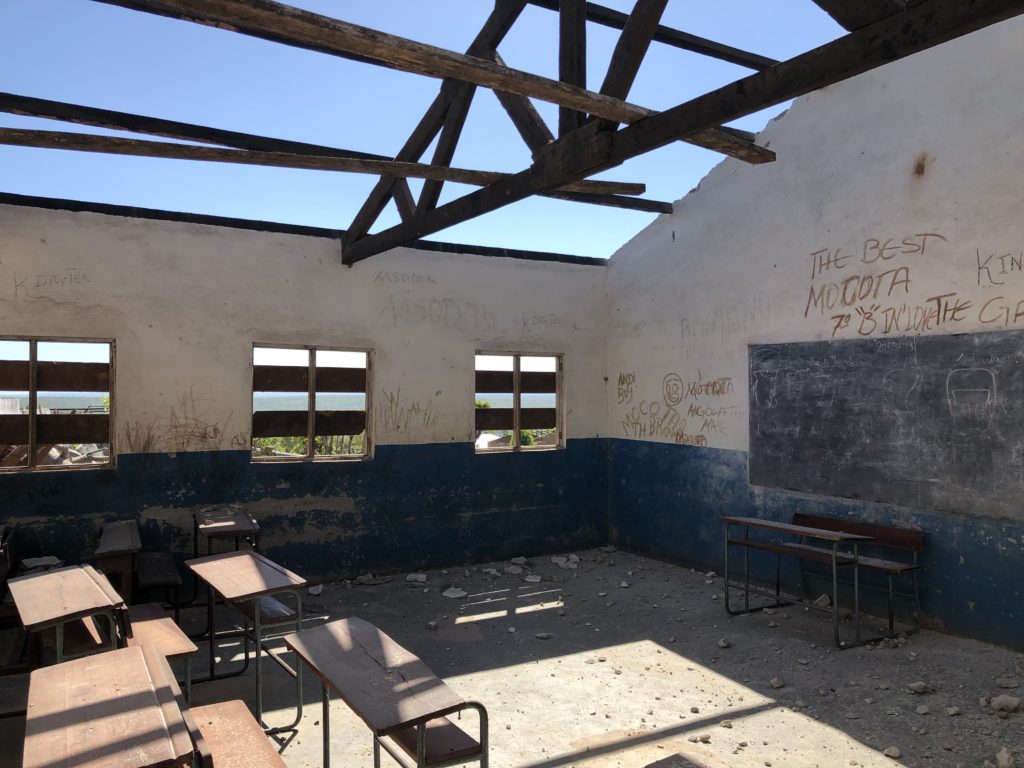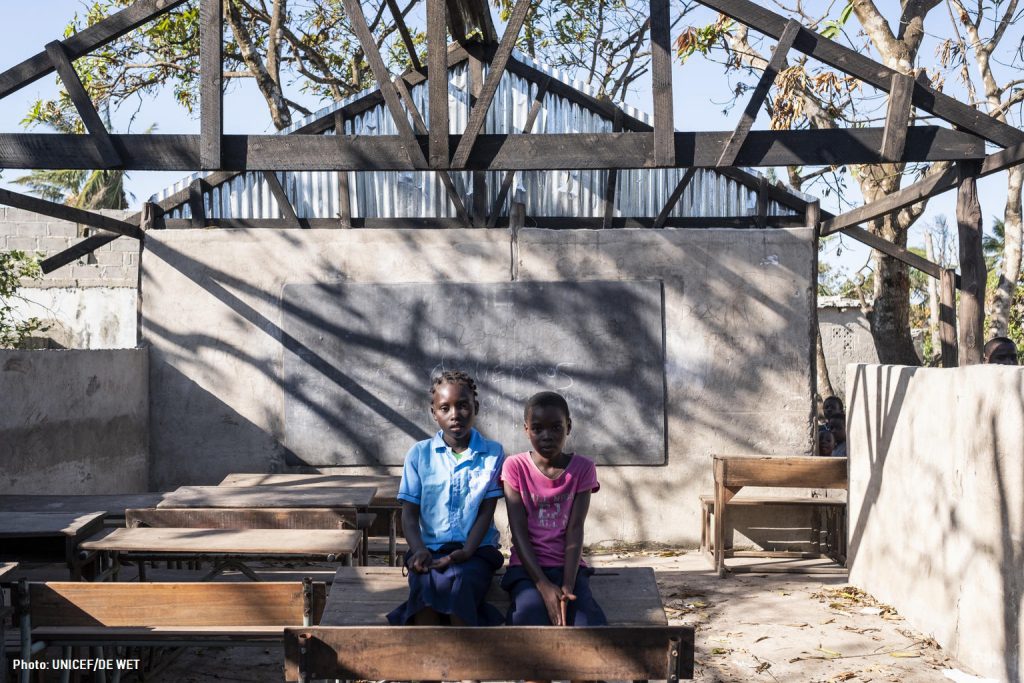Education Cannot Wait Allocates Additional US$7.8 Million to Support Education Responses for Children Impacted by Cyclone Season in Malawi, Mozambique and Zimbabwe

Funding will support the recovery of communities impacted by cyclone Idai and cyclone Kenneth
Education Cannot Wait is expanding its recovery support for communities affected by the devastating cyclone season in Southern Africa with an additional US$7.8 million in funding for education responses for children in Malawi, Mozambique and Zimbabwe.
This is the second tranche of funding announced by Education Cannot Wait to respond to the destruction caused by Cyclone Idai in the three countries. In Mozambique, the funding includes a $360,000 allocation to provide education support to children and youth affected by Cyclone Kenneth which pummeled through the country just a few weeks after Cyclone Idai.
This new funding allocation brings Education Cannot Wait’s total support to emergency responses in Malawi, Mozambique and Zimbabwe to almost US$15 million to date, including contributions from the United Kingdom’s Department of International Development (DFID) and Dubai Cares.
“This additional support from Education Cannot Wait for the children affected by the catastrophic cyclone season in Malawi, Mozambique and Zimbabwe helps to ensure education is a top priority for aid stakeholders throughout the various phases of crisis, from the immediate emergency response to longer-term recovery,” said Yasmine Sherif, Director of Education Cannot Wait. “Speed, continuity and sustainability of interventions are crucial for children to achieve quality learning and for education to play its role as a stepping-stone for children and communities to recover and build back better after disaster.”
Cyclone Idai wreaked vast devastation across the three countries in March. Mozambique was hardest hit by the cyclone and subsequent flooding. Estimates indicate over 3,500 classrooms were destroyed, affecting more than 300,000 students and 7,800 teachers. Children not only lost their homes but were also displaced and in some cases lost family members, friends, classmates and teachers in the disaster. Just a few weeks later, Cyclone Kenneth also hit Mozambique, leaving close to 250,000 people in need of assistance, including 42,000 school-aged children.
Education Cannot Wait’s second funding tranche for the response to Cyclone Idai supports inter-agency humanitarian appeals in the three countries. It includes US$1.2 million in grant funding for Malawi, US$5 million for Mozambique, and US$1.2 million for Zimbabwe. The funding covers close to 9 per cent of the education sector funding gaps in Malawi and Zimbabwe and 11 per cent of the gap in Mozambique.
Building upon the initial funding announced by Education Cannot Wait in April and May to support the response to Cyclone Idai, these additional grants will reach more than 185,000 children across the three countries: 41,491 children in Malawi (20,732 girls); 107,266 children (49,041 girls) in Mozambique and 36,350 children (18,085 girls) in Zimbabwe.
In Mozambique, the new US$360,000 grant to support the response to Cyclone Kenneth is also aligned with the inter-agency humanitarian appeal and will reach an additional 15,000 children (7,500 girls).
Grants to United Nations agencies and international NGOs will be used to support a wide range of partners, including national governments, local NGOs and communities impacted by the cyclones and are aligned with national education sector plans.
Programmes will support access to safe and protective learning environments for affected girls and boys through a wide range of context-specific activities across the three countries. These include: establishing temporary learning spaces; rehabilitating schools; supplying educational materials and recreation kits; school feeding programmes, training and support for teachers to deal with disasters and crisis in schools and community; promoting back-to-school and live-saving messaging; promoting hygiene education and psychosocial support by teachers; and, support to disaster preparedness and disaster management.
LINKS
- Learn more about Education Cannot Wait’s emergency education response for Malawi, Mozambique and Zimbabwe
- Meet Maria Alberto, a courageous teacher supporting the recovery of children in Mozambique in our story Portraits of Resilience
For Press Inquiries:
Anouk Desgroseilliers:
adesgroseilliers@un-ecw.org
+1-917-640-6820
Kent Page:
kpage@unicef.org
+1-917-302-1735



